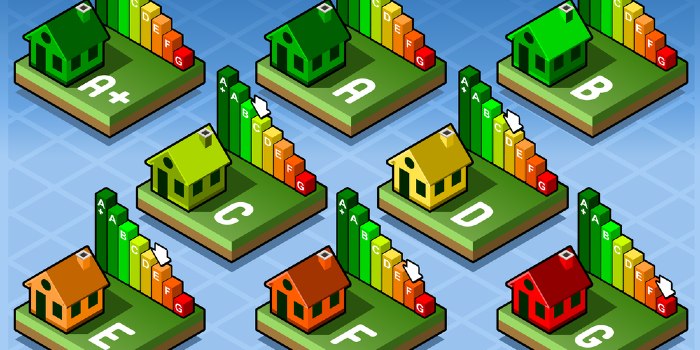A coalition of consumer, energy, construction and finance organisations have called on the government to introduce an Energy Saving Stamp Duty Rebate to encourage homeowners to improve the energy performance of their homes.
In a letter to Chancellor Rishi Sunak, the Energy Efficiency Infrastructure Group (EEIG) has called for the introduction of an Energy Stamp Duty Incentive. The group believes that such a measure would lead to more sustainable new homes and a substantial increase in retrofitted owner-occupied homes.
The carbon emissions from the 29 million homes account for 20% of the UK’s carbon emissions. This has increased over the past six years.
In order to meet the Government’s target of a 78% reduction in greenhouse emissions by 2035, the carbon emissions of our homes need to be reduced. And the group believes that this can only be achieved with a long-term structural incentive such as the Energy Saving Stamp Duty Rebate.
How The Proposed Scheme Would Work
The Stamp Duty Land Tax (SDLT) would be linked to the EPC rating of a house. As an up-to-date EPC is already required to sell a house, there would be no additional burden on the seller.
The SDLT would be set to a ‘neutral’ level and this will then be adjusted according to the EPC rating of the house that is bought. If a house has a higher rating, the buyer will receive an Energy Saving Stamp Duty Rebate.
The higher the EPC rating, the higher the rebate, the lower the stamp duty that is paid.
Home buyers would also be able to get the Energy Stamp Duty Rebate if they make improvements to their new home within 24 months of purchase. If these improvements result in an updated EPC, the SDLT would be reduced.
Benefits This Scheme Would Bring
The EEIG states that such a scheme would create a statement of intent, but no extra costs to the government. By giving people who can afford to make these improvements an incentive, the subsidy grant can be targeted at families who are in need of such financial support.
An Energy Saving Stamp Duty Incentive is not a silver bullet – and we are not suggesting that any rebate should cover the full cost of works that might be needed. We are, however, proposing a rebate significant enough to get homebuyers’ attention and create the conditions for homeowners and purchasers to invest in, and improve, their own homes.
Sarah Kostense-Winterton, Chairperson of The Energy Efficiency Infrastructure Group – excerpt from letter
An Energy Saving Stamp Duty Rebate would also invigorate the green mortgage market and create a UK home retrofit market. This will create jobs and a sustainable supply chain and, increase skills.
The group sees this as a long-term structural incentive that will increase confidence in business and increase investment. In opposition to temporary grants and subsidies that create a boom-bust cycle.
Impact Of An Energy Saving Stamp Duty Rebate On Home Buyers and Sellers
In the short-term, the introduction of an Energy Saving Stamp Duty Rebate is likely to increase the purchase prices of houses with high EPC ratings. However, the EEGI thinks that in the long-term, such a scheme would make energy-efficient homes cheaper.
Making a house more energy efficient has several benefits. It is better for our environment, but it will also lower energy bills and will reduce our reliance on imported fuel and energy.
In view of the recent hike in energy prices, the installation of a heat pump or insulation will not only lower homeowners’ energy bills, but it will also give them peace of mind and future-proof their homes against such price hikes.
Apart from encouraging house buyers to seek out houses which are more energy efficient and homeowners to make improvements to their properties, it would also encourage the building of more energy efficient new houses.
This would increase the building standards of new houses, which will benefit all house buyers.
Successful UK retrofitting, backed by a real-performance regime, will not only decrease our net carbon emissions in line with government objectives but also increase the standard of living for over 29 million homeowners.
Sarah Kostense-Winterton, Chairperson of The Energy Efficiency Infrastructure Group – excerpt from letter
If an Energy Saving Stamp Duty Rebate was introduced, as proposed by The Energy Efficiency Infrastructure Group, not only would the environment benefit, but it would also make energy efficiency part of the house buying process. And this would benefit house buyers and sellers alike.
If you want to know more about the Energy Performance Certificate (EPC), you can find out in this article.




